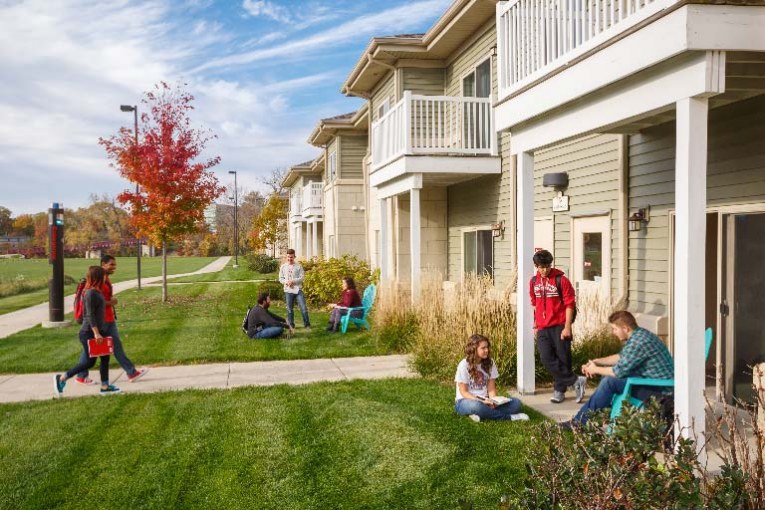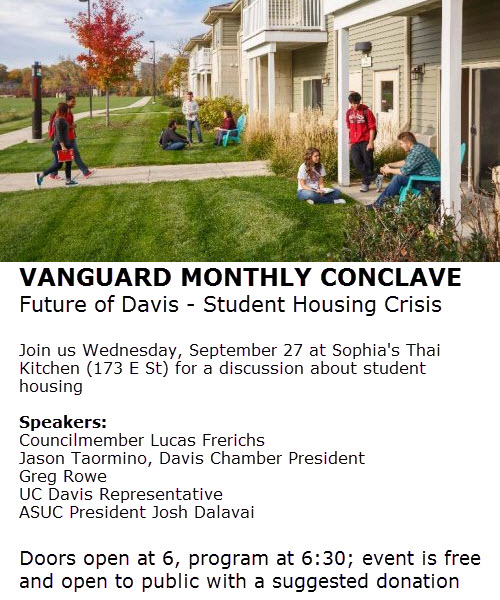

The California legislature did not sit back on the sidelines as California plunges into a huge housing crisis. It remains to be seen whether the 15-bill package makes a dent in the needed 1.8 million new housing units in the next decade (just to keep pace, mind you).
Clearly, while this was a sweeping step, it was also a modest one. For example, there is going to be a $4 billion bond for affordable housing construction. While that is a good start, it it really pales in comparison with redevelopment money that used to be available for affordable housing as well as redevelopment. That will need to wait probably for another governor to fix.
One of the hurdles to big “A” Affordable Housing that the city has is the lack of a funding mechanism for it. That is one reason why the council explained, in the post-redevelopment world, they have attempted to secure funding through in-lieu fees. RDA money or some equivalent thereof would be the best system, but creating a $4 billion pot for affordable housing is at least a start.
Of the 15 bills, we will look at three of them closely.
SB 35 was among those passed. “The Regional Housing Needs Allocation (RHNA) is the state-mandated process that sets the number of housing units that must be included, at all affordability levels, in each local jurisdiction’s housing element.
“Under SB 35, if cities aren’t on track to meet those goals, then approval of projects will be streamlined if they meet a set of objective criteria, including affordability, density, zoning,  historic, and environmental standards, and if they meet rigorous standards for construction labor.”
historic, and environmental standards, and if they meet rigorous standards for construction labor.”
Will that impact Davis? We think probably not, since Davis is usually right on its number or close enough to it that it won’t trigger SB 35. But, for the first time, the state itself is putting some teeth on RHNA standards and the need to meet those standards. That is a development at least worth watching.
Also, there are two bills from Senator Nancy Skinner, D-Berkeley, aimed at addressing the “Not-In-My-Back-Yard” phenomenon that Senator Skinner and other lawmakers believe has worsened the state’s housing shortage.
Senate Bill 166 would require cities to identify enough development sites to meet unmet housing needs. The big impact is if the city uses a site, zoned for housing, for other purposes, they would have to find additional land for housing.
Meanwhile, Senate Bill 167 would prohibit local officials from voting down housing projects that fit within zoning and other land-use designations.
This is an issue that came up during the B Street Residence debate, where city staff argued that the B St. Residence project was voted down by the Planning Commission despite the fact that it met existing zoning requirements with a small variance for the height of the roof for a small portion of the project.
Would SB 167 kick in and impact whether the city would be compelled to approve the project? Hard to know.
There is a bigger potential impact. Given that SB 167 prohibits local officials from voting down housing projects that fit within zoning and other land-use designations, will that now raise the  stakes for the Core Area Specific Plan (CASP) and ultimately the General Plan.
stakes for the Core Area Specific Plan (CASP) and ultimately the General Plan.
Consider that much of the debate right now on Trackside has been over whether the project meets current design guidelines, and the degree to which the city is required to adhere to those design guidelines.
Mayor Pro Tem Brett Lee recently argued that the design guidelines do not provide the level of protection that people think they provide and that, in fact, it only takes three councilmembers to simply change the guidelines or approve amendments to them that are project-specific.
The Vanguard has argued that the city ought to, at the very least, figure out what the CASP is going to be first before embarking on approval of a project that figures to shift the existing land use landscape in the area.
However, SB 167 could raise the stakes here for the planning process, and perhaps in a somewhat ironic way. SB 167 would mean that local officials could not vote down housing projects that met current zoning and other guidelines. That means that projects adhering to current zoning would be prioritized and gain certainty and more sure outcomes.
At the same time, those which exceed current guidelines would have to go through a lengthy and much more uncertain process. As ironic as it seems, this comes closer to backing the neighbors’ position that we should not do planning by exception.
However, it also raises the stakes for the CASP plan. Right now the core area has height guidelines and limitation of three to four stories. Given that the document is around 20 years old, that seems outdated and we are likely to see the core area height limitation go up perhaps to five or six stories.
While these will remain guidelines which can be changed by three votes of council, it seems like developers will have more of an incentive to streamline the approval process by adhering to guidelines – again, something that the neighbors will like to hear – but that does increase the incentive on the development interests to expand what the guidelines will allow.
Finally, it is important to note that, while the 15-bill package is aimed at creating those 1.8 million new homes in the next decade, the reality is that the biggest impacts on Davis seem largely unchanged.
University growth has, of course, been one of the catalysts for growth pressures on Davis as Davis continues to have a 0.2 percent vacancy rate, and Davis continues to have Measure R – which greatly limits, if not altogether forecloses, new development beyond the current borders.
None of this changes those fundamentals. However, where this will have a potential impact is the ability to get financing for and incentive to produce greater density infill in the core areas. Once again, the upcoming Core Area Specific Plan will be vital in determining the future of Davis.
—David M. Greenwald reporting


Does SB167 define “other guidelines”?